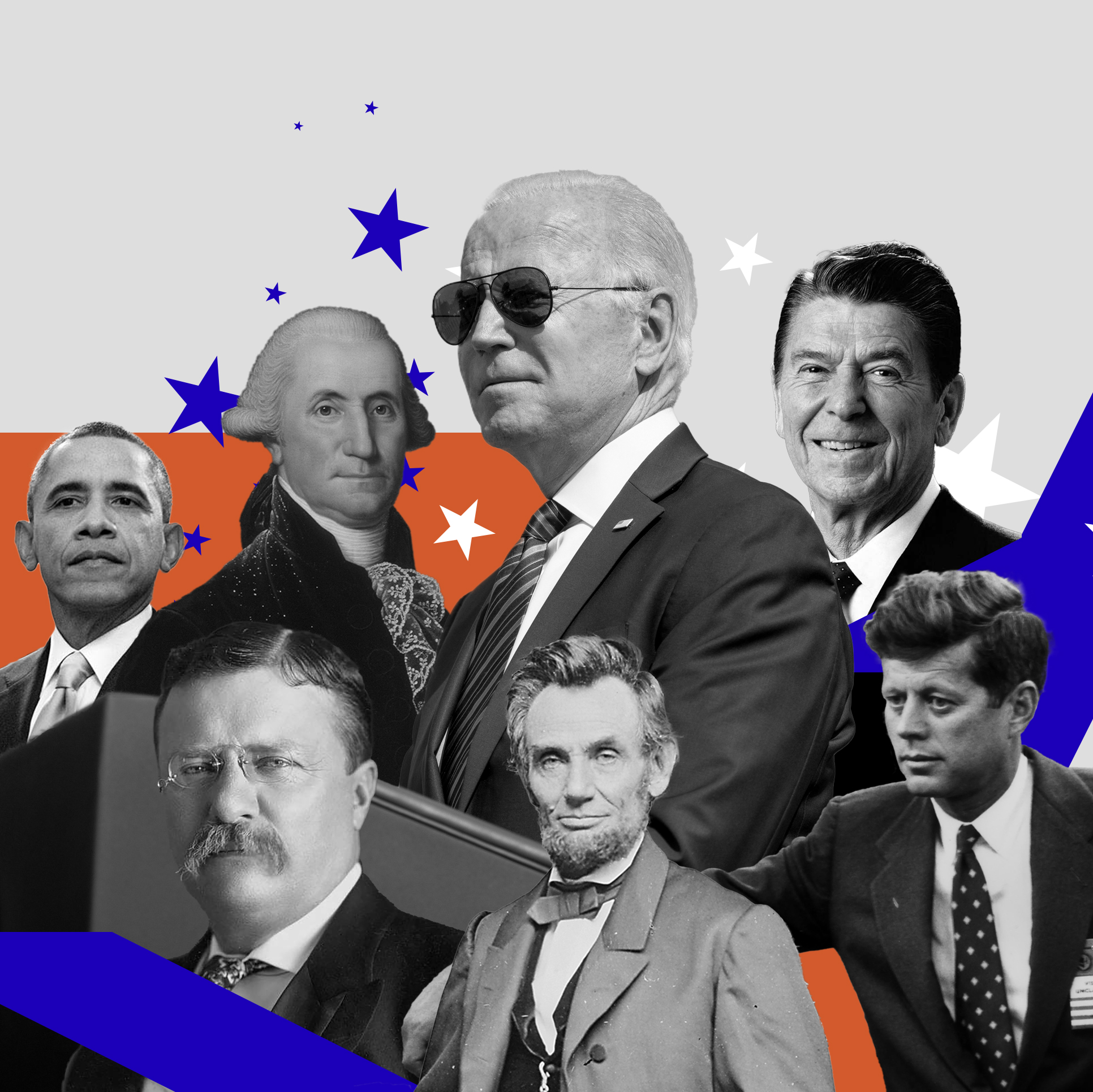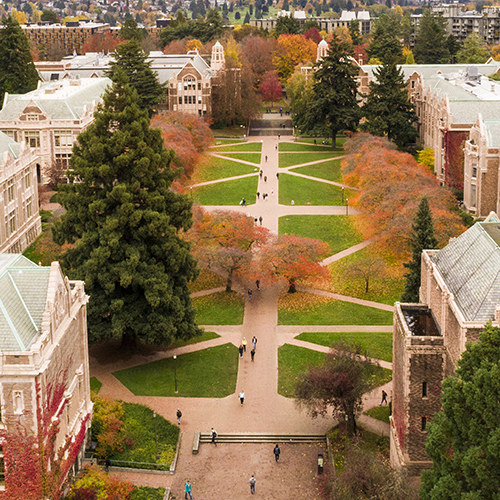Presidential Early Career Award for Machine Learning Research

The modern world is awash in digital information, with the quantity of data growing exponentially. Emily Fox is finding ways to make use of that data as a specialist in the emerging field of machine learning. Fox, associate professor of statistics and computer science & engineering, and Amazon Professor of Machine Learning, has received a 2017 Presidential Early Career Award for Scientists and Engineers for her work. The award is the highest honor given by the U.S. government to early career scientists and engineers.
Machine learning, at the intersection of computer science and statistics, uses computers to automatically analyze data, identify complex trends, and then apply them to completely new situations. Fox’s machine learning research has been applied in a wide range of domains including neuroscience, finance and econometrics, human motion, and social networks. An expert in Bayesian statistics, she combines past observations and current data. Some of her latest projects include analyzing functional connectivity networks in the brain from neuroimaging data, modeling highly localized house price indices in collaboration with Zillow, and developing a novel statistical framework for analyzing sparse social network data.
The National Science Foundation nominated Fox for the Presidential Early Career Award, noting her groundbreaking research but also her mentoring of women in computer science and statistics.
Four Awards for Book about the Makahs

For Joshua Reid, good news comes in fours. Reid, associate professor of history and American Indian studies, has received four book prizes for The Sea is My Country: The Maritime World of the Makahs, which explores the history and identity of the Makah tribal nation from the arrival of maritime fur traders in the eighteenth century to the present day.
Reid’s quartet of honors includes the John C. Ewers Award for the Best Book in North American (including Mexico) Indian ethnohistory; the Sally and Ken Owens Award given biennially for the best book on the history of the Pacific West; the Caughey Book Prize given annually for the most distinguished book on the history of the American West, broadly defined; and the Erminie Wheeler-Voegelin prize from the American Society of Ethnohistory for the best book-length contribution to the field of ethnohistory.
The Makahs, a tribal nation at the most northwestern point of the contiguous United States, have long placed marine space at the center of their culture, finding in their own waters the physical and spiritual resources to support themselves. Reid discovers that they were far more involved in shaping the maritime economy of the Pacific Northwest than has been previously understood.
Reid examines Makah attitudes toward borders and boundaries, their efforts to exercise control over their waters and resources as Europeans and then Americans arrived, and their embrace of modern opportunities and technology to maintain autonomy and resist assimilation. The author also addresses current environmental debates relating to the tribe’s customary whaling and fishing rights and illuminates the efforts of the Makahs to regain control over marine space, preserve their marine-oriented identity, and articulate a traditional future.
The Sea Is My Country: The Maritime World of the Makahs is published by Yale University Press.
St. Patrick’s Day Medal for Statistician

On March 15, Prime Minister Enda Kenny of Ireland honored Adrian Raftery, UW professor of statistics and sociology, with the St. Patrick’s Day Medal, recognizing Raftery's diverse contributions to the field of statistics. The medal is awarded each year by Science Foundation Ireland (SFI) to honor Irish-born scientists who live and work in the United States.
“I am very happy to be recognized by Science Foundation Ireland,” says Dublin-born Raftery. “It means a lot to me to be honored by my own country.”
Raftery has worked to develop new statistical methods for scientific problems, with a focus on the social, environmental, and health sciences. A wide range of scientific fields rely on statistical tools to draw conclusions about the world at large from the results of specific experiments or series of observations; Raftery has developed, tested, and applied statistical models and methods to improve and sharpen these tools. His methods have been applied to problems ranging from weather forecasting to population growth projections.
“To a large extent, this award is for the work of my amazing Ph.D. students and collaborators at UW, in Ireland, and elsewhere over the years,” says Raftery. “It reflects the strategic impact of statistical thinking on science and policy. I am happy to have been able to help colleagues in a variety of scientific fields with new statistical methods to interpret their data.”
Raftery served as founding director of the UW Center for Statistics and the Social Sciences and has authored more than 200 articles in scientific journals over the course of his career. Thomson Reuters named him the most-cited researcher in mathematics in the world from 1995 to 2005.
Other Awards, Honors, and Professorships
Honorary Awards
Matthew Bush, assistant professor of chemistry, has received the Arthur F. Findeis Award for Achievements by a Young Analytical Scientist, from the American Chemical Society’s Division of Analytical Chemistry. His research group at the UW focuses on developing mass spectrometry-based approaches for elucidating the structures, assembly, and dynamics of protein complexes.
Lauro Flores, professor of American Ethnic Studies, received the 2016 UW Alumni Association Multicultural Alumni Partnership (MAP) Distinguished Community Service Award. In honor of his many contributions to the larger community, Flores received the Premio Ohtli award earlier in the year, the highest recognition granted by the government of Mexico to members of the Mexican or Mexican-origin community in the U.S. who have made exceptional contributions to the development of the Mexican community abroad.
David Ginger, the Alvin L. and Verla R. Kwiram Endowed Professor of Chemistry and associate director of the UW Clean Energy Institute, received the 2017 Cottrell TREE Award from the Research Corporation for Science Advancement. TREE awards “recognize the outstanding research and educational accomplishments of the community of Cottrell Scholars, and serve to encourage the improvement of science education at American universities and colleges.” Ginger’s primary research focuses on how to supply our society with low-cost, environmentally benign sources of energy, such as solar power.
Peter Guttorp, professor emeritus of statistics, received the Barnett Award from the Royal Statistical Society “for his sustained and excellent contribution to the field of environmental statistics.” Guttorp's contributions span both advanced methodological developments and their application to a range of environmental systems, including climate change, atmospherics and geophysics. His work has influenced policy across the environmental sciences and he was a member of the Intergovernmental Panel on Climate Change that was awarded the Nobel Peace Prize in 2007.
Raymond Huey, professor emeritus of biology, was named 2017 Ecological Society of America Fellow for his foundational work on thermal sensitivity of ectotherms and its links to the ecological and evolutionary impacts of climate change.
Emily Levesque, assistant professor of astronomy, was named a 2017 Alfred P. Sloan Research Fellow in Physics. The two-year fellowships are awarded yearly to 126 early-career researchers in the U.S. and Canada in recognition of distinguished performance and a unique potential to make substantial contributions to their field. Levesque studies the behavior, composition, and life cycles of “massive” stars—stars that are at least eight times more massive than our own sun and harbor a bevy of information about our universe.
Matt Lorig, associate professor of applied mathematics, has been awarded the Early Career Prize by Society for Industrial and Applied Mathematics’ Activity Group on Financial Mathematics and Engineering. The prestigious prize is given to an outstanding early career researcher for distinguished contributions to the mathematical modeling of financial markets. Lorig’s methodology has been used to solve a great variety of problems in finance, such as pricing options and swaps, and dynamic/static hedging of derivatives.
Andrew Meltzoff, professor of psychology, Job and Gertrud Tamaki Endowed Chair, and co-director of the Institute for Learning and Brain Sciences, was elected to the Society for Experimental Psychologists, an honorary society "to advance psychology by arranging informal conferences on experimental psychology."
Jennifer Nemhauser, professor of biology, was named 2016 Faculty Scholar through a partnership between the Howard Hughes Medical Institute, the Simons Foundation, and the Bill & Melinda Gates Foundation. The Faculty Scholars program is intended to support scientists in their initial years as research faculty and provide them the freedom and flexibility to pursue more innovative or risky projects — endeavors which have greater potential for scientific advancements but also less certainty for success.
Isabella Novik, Julia Pevtsova, and Tatiana Toro, all professors of mathematics, were named Fellows of the American Mathematical Society. Julia Pevtsova was also named a 2017 Simons Fellow in mathematics and theoretical physics by the Simons Foundation.
Thomas Rothvoss, assistant professor of mathematics, has been named a 2016 Packard Fellow in Science and Engineering by the David and Lucile Packard Foundation. Each Fellow receives a grant of $875,000 over five years to pursue their research. The Packard Foundation established the Fellowships program to provide early-career scientists with flexible funding and the freedom to take risks and explore new frontiers in their fields.
Publication Awards
Kirsten Foot, professor of communication, received the 2016 Sue DeWine Distinguished Scholarly Book award from the Applied Communication Division of the National Communication Association (NCA) for her book Collaborating Against Human Trafficking: Cross-Sector Challenges and Practices. The book also received the NCA Organizational Communication Division 2016 Award for Outstanding Book.
Sonal Khullar, associate professor of art history in the School of Art + Art History + Design, was awarded the 2017 Bernard S. Cohn Book Prize for her book Worldly Affiliations: Artistic Practice, National Identity, and Modernism in India, 1930-1990, from the Association for Asian Studies’ South Asia Council. The annual prize honors outstanding and innovative scholarship across discipline and country of specialization for a first single-authored monograph on South Asia, published during the preceding year.
Tim Leung, associate professor of applied mathematics, received an Emerald Literati Network Award for Excellence – Outstanding Paper from Emerald Publishing Group for his paper, “The Golden Target: Analyzing the tracking performance of leveraged gold ETFs.” Emerald Group Publishing is one of the world’s leading scholarly publisher of journals and books in business and management with a strong and growing presence in disciplines including, business, social sciences, public policy, engineering, and education.
Devin Naar, associate professor of history and Isaac Alhadeff Professor of Sephardic Studies, has been recognized by the 2016 National Jewish Book Awards for his book Jewish Salonica: Between the Empire and Modern Greece. He received the JDC-Herbert Katzki Award for writing based on archival material, and was a finalist for the Mimi S. Frank Award for books related to Sephardic culture. The annual book awards, selected by the Jewish Book Council, span the full range of genres, from poetry and children’s literature to memoir and biography, Holocaust Studies, Jewish Education, and scholarship in several fields.
Mark Smith, professor of political science and comparative religion, won the Morris D. Forkosch Book Award from the Council for Secular Humanism for his book, Secular Faith: How Culture Has Trumped Religion in American Politics. The Forkosch award honors the year's best book on humanism.
Christina Sunardi, associate professor of music, received the American Musicological Society’s Philip Brett Award for her book Stunning Males and Powerful Females: Gender and Tradition in East Java Dance.
Chair & Professorship Appointments
Daniel Bessner, assistant professor in the Jackson School of International Studies, has been appointed to the Anne H.H. and Kenneth B. Pyle Professorship in American Foreign Policy for a three-year term.
Sara Billey, professor of mathematics, has been appointed to the John Rainwater Faculty Fellowship for a three-year term.
Ellen Garvens, professor in the School of Art + Art History + Design, has been appointed to a Donald E. Petersen Endowed Faculty Fellowship in the Arts for a three-year term.
John Geweke, affiliate professor of economics, has been appointed to the Charles R. Nelson Endowed Professorship in Economics for a four-year term.
Randall LeVeque, professor of applied mathematics, has been appointed to a Boeing Endowed Professorship in Applied Mathematics for a three-year term.
Rachael Lincoln, lecturer in the Dance Program, has been appointed to a Donald E. Petersen Endowed Faculty Fellowship in the Arts for a three-year term.
Estelle Lingo, associate professor in the School of Art + Art History + Design, has been appointed to a Donald E. Petersen Professorship in the Arts for a three-year term.
Isabella Novik, professor of mathematics, has been appointed to the Robert and Elaine Phelps Professorship of Mathematics for a four-year term.
David Rahbee, senior artist in residence in the School of Music, has been appointed to a Donald E. Petersen Endowed Faculty Fellowship in the Arts for a three-year term.
Christina Sunardi, associate professor of music, has been appointed to the Adelaide D. Currie Cole Endowed Professorship in the School of Music.
Tatiana Toro, professor of mathematics, has been appointed to the Craig McKibben and Sarah Merner Endowed Professorship in Mathematics for a three-year term.
James Wellman, professor in the Jackson School of International Studies, has been appointed Term Professor in Global Christianity for a five-year term.
Other Awards
Valerie Curtis-Newton, professor of drama and head of the School of Drama’s Acting and Director Master’s Program, was awarded the prestigious Artist Trust Innovator Award, which includes $25,000 in unrestricted support, funded by the Dale and Leslie Chihuly Foundation. This prize is awarded to Washington State artists from any discipline who are pushing the boundaries and redefining the work of their field.
The Henry Art Gallery and the UW Libraries have been awarded a major grant from the Andrew W. Mellon Foundation for a jointly-proposed project, Collaborative Paper and Photograph Conservation at the University of Washington Libraries and the Henry Art Gallery. The $300,000 Mellon grant will support a three-year, 50/50 joint appointment of an associate conservator for paper and photographs to address the unmet conservation needs of extensive, important, and frequently exhibited collections of photographs and other works on paper.
Aaron Flint Jamison, assistant professor of photomedia in the School of Art + Art History + Design, has been selected for the 2017 Whitney Biennial, the 78th installment of the longest-running survey of American art.
Anne McCoy, professor of chemistry, has been awarded the 2017 Brian Kohler Distinguished Lectureship at the University of California at Riverside.
Victoria Meadows, professor of astronomy, has been selected as an honorary visiting scholar at the University of Tokyo and the National Astronomical Observatories of Japan.
Patricia Moy, professor of communication and Christy Cressey Endowed Professor, was elected vice-president/president-elect of the International Communication Association. Moy is the first UW faculty member to serve in this role.
Linda Nash, associate professor of history and John Calhoun Smith Memorial Endowed Professor, has received a National Endowment for the Humanities grant for research into how Americans’ approach to postwar development was shaped by the nation’s abundant resources and its history of settler colonialism in the American West.
Haicheng Wang, associate professor of art history in the School of Art + Art History + Design, was awarded a Mellon New Directions Fellowship, which assists faculty members in the humanities and humanistic social sciences who seek to acquire systematic training outside their own areas of special interest.
More Stories

Is This Presidential Campaign Different?
UW History professor Margaret O'Mara provides historical context for this moment in US presidential politics.

A Nobel, an Inventor, a Polymath & More
Recent awards and appointments celebrate Arts & Sciences faculty and staff for their research, leadership, and more.

Democracy by the Numbers
Mathematics and Democracy, an undergraduate mathematics course, explores the role of math in many aspects of democracy, from elections to proportional representation.